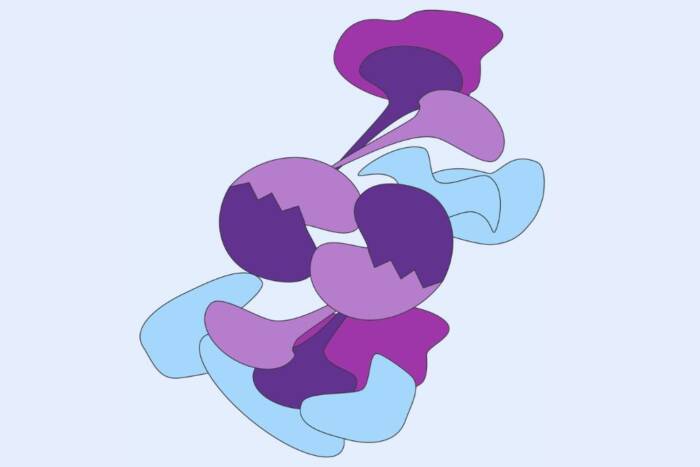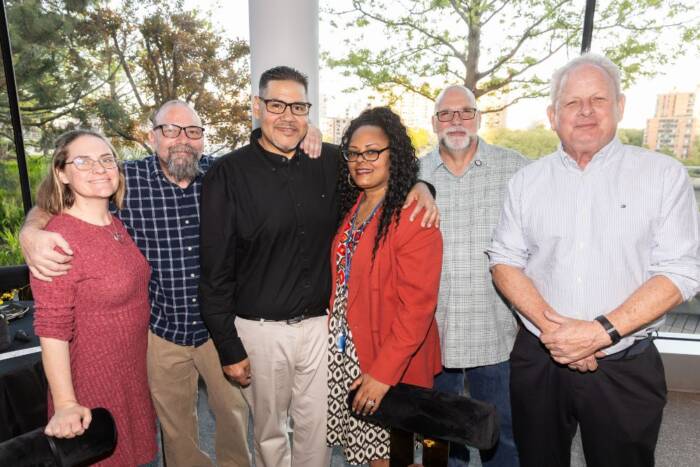Weill Cancer Hub East launched to unlock immunotherapy's full potential
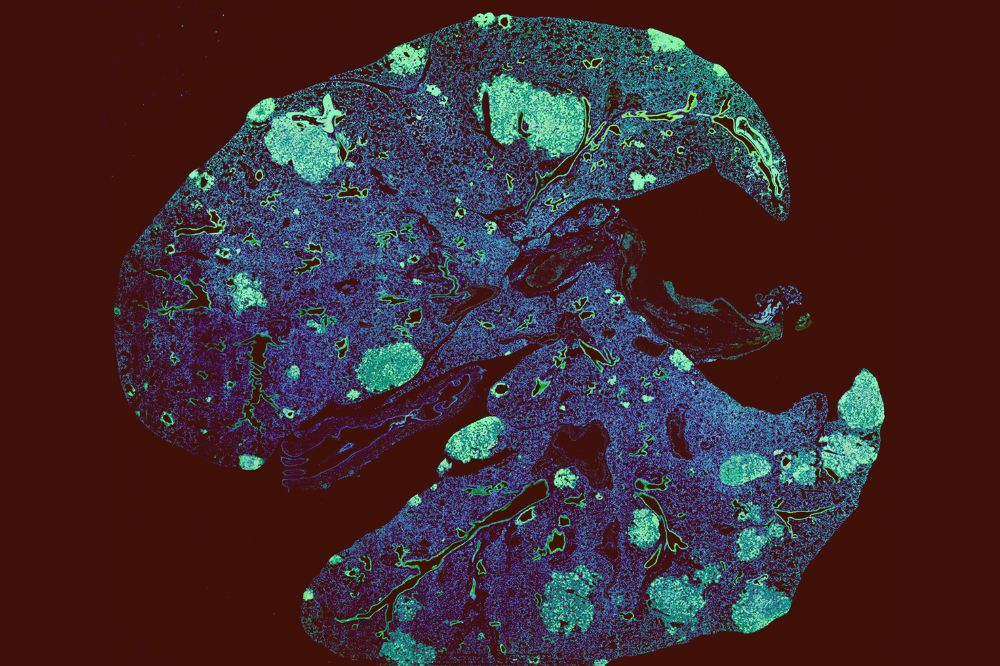
Metastasis in a mouse lung. (Courtesy of Tavazoie lab)
Harnessing the body’s own immune system to fight cancer has emerged as an enormously powerful tool in recent years. But not all cancer patients respond to immunotherapy—and scientists are learning that diet, metabolism and our individual microbiomes are major factors in governing the immune response of a given patient.
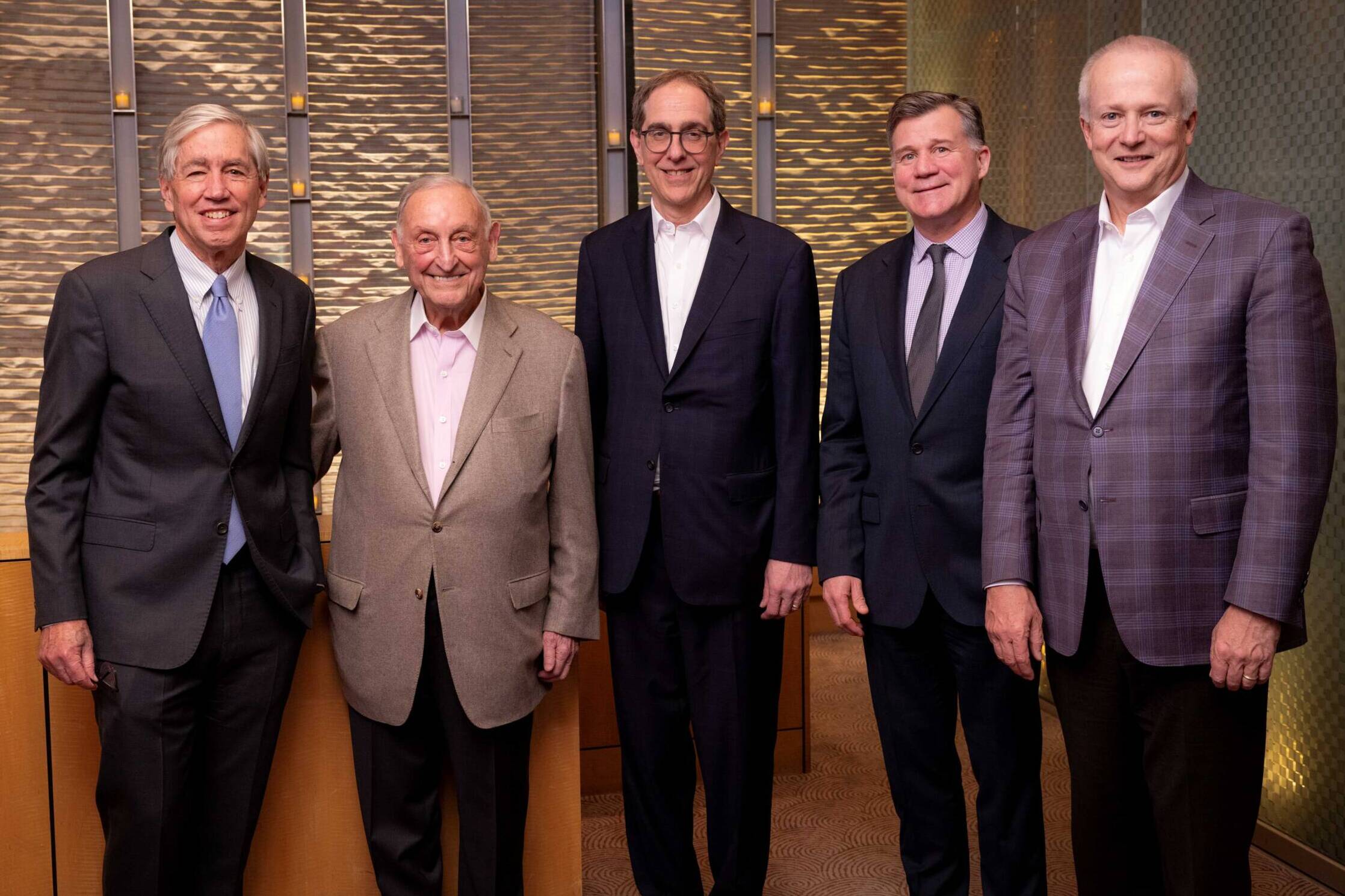
Left to right: Dr. Richard Lifton (The Rockefeller University), Sanford I. Weill (Weill Family Foundation), Christopher L. Eisgruber (Princeton University), Dr. Jonathan C.A. Skipper (Ludwig Institute for Cancer Research), Dr. Robert A. Harrington (Weill Cornell Medicine)
Enter the Weill Cancer Hub East, a collaboration between The Rockefeller University, Weill Cornell Medicine, Princeton University, and the Ludwig Institute for Cancer Research. The new cancer hub is funded by a generous $50 million gift from the Weill Family Foundation, under the direction of Joan and Sanford I. Weill, and matched with philanthropy from each partner institution that together will total more than $125 million. The hub will bring together the leading minds in cancer, immunology, nutrition, and metabolism to remove the barriers between basic science and better clinical outcomes.
“With the best minds in the field armed with the most advanced research techniques, the Weill Cancer Hub East will seek to elevate immunotherapy and improve patient care for people battling cancer,” says Sandy Weill, founder of the Weill Family Foundation. “Joan and I could not be more excited about the endless possibilities of this special partnership—investment in science and medicine is our labor of love.”
Improving immunotherapy is at the heart of this effort. While this approach has transformed cancer therapy, too many patients still don’t respond. Scientists at the hub aim to understand why, by exploring how metabolism, diet, and the microbiome influence immune function. Their goal is to make immunotherapy work better, for more people, across more types of cancer.
“Immunotherapy has revolutionized cancer treatment, but there is still much basic science to do to learn why it works in some patients and not others,” says Sohail Tavazoie, the Leon Hess Professor at Rockefeller and director of the Black Center for Metastasis Research. Tavazoie will serve on a scientific steering committee that will guide the hub’s research priorities. “We hope to uncover new biology at the interface of cancer metabolism and immunology that will lead to novel ways to extend these life-saving treatments to more people.”
The cancer hub will also more broadly investigate how diet, gut microbes, and metabolic processes shape the tumor microenvironment and tumor metabolism. Researchers hope that rewiring tumor metabolism and spurring the microbiome to activate immune responses may open the door to novel therapies. One of the first clinical trials that the hub will launch is a study of how cancer patients’ immune responses react to GLP-1 agonists— a class of diabetes and obesity medications rooted in peptide chemistry developed by Rockefeller’s Svetlana Mojsov.
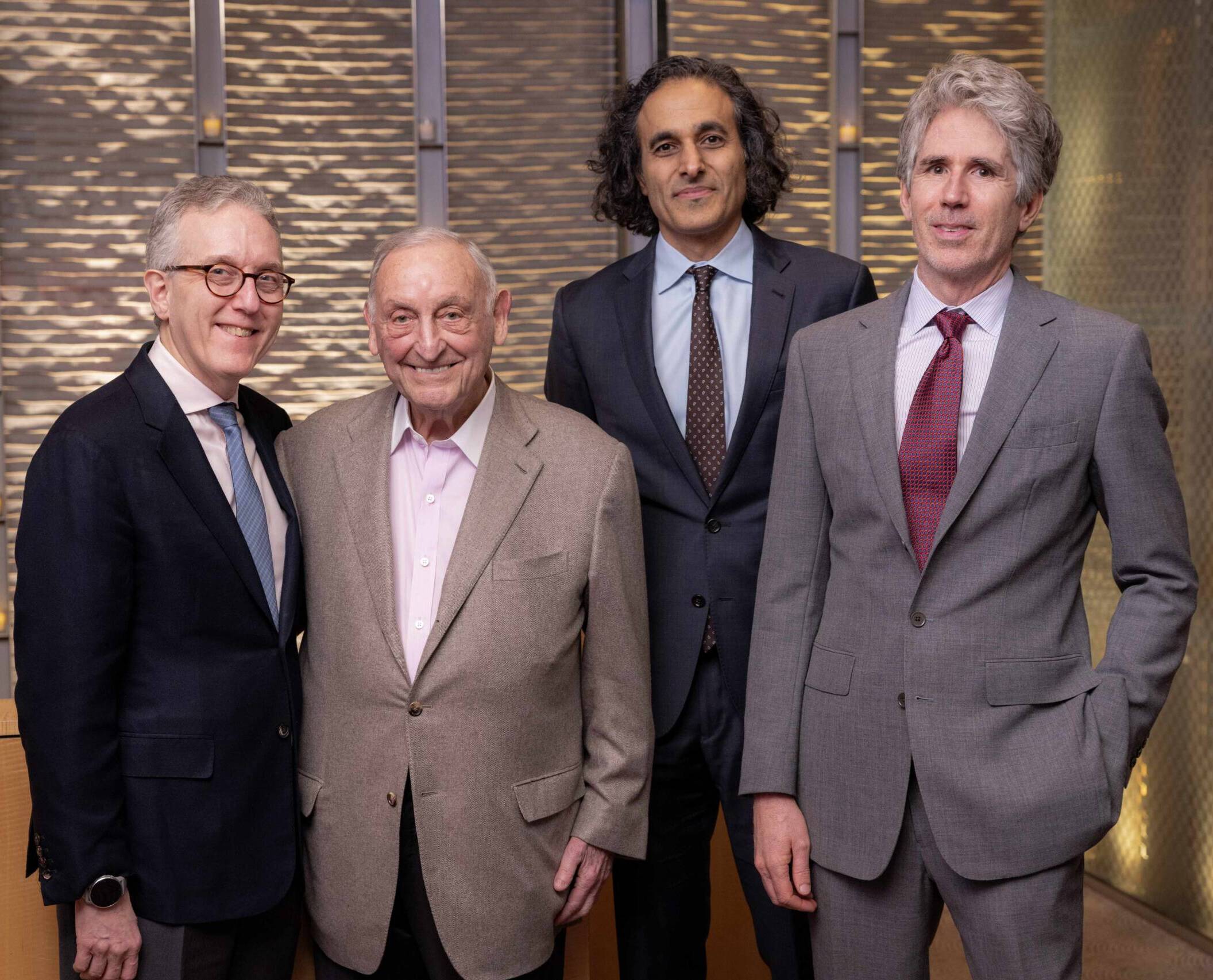
Left to right: Dr. Jedd Wolchok (Weill Cornell Medicine), Sanford I. Weill (Weill Family Foundation), Dr. Sohail Tavazoie (Rockefeller University), Dr. Joshua Rabinowitz (Princeton University and Ludwig Institute for Cancer Research)
“The funding for this collaboration allows for a deep, mechanistic investigation into how one’s diet, metabolism and microbiome can affect cancer immunotherapy,” says Richard P. Lifton, president of Rockefeller. “Promoting the integration of basic science and clinical investigation will promote discoveries that will improve patient outcomes.”
Beyond basic science, the hub was also founded to cultivate talent and train future leaders in cancer research. With that goal in mind, Tavazoie and colleagues plan to host workshops and retreats, and organize symposia that bring even more great minds to the table.
“The Weill Cancer Hub East represents an unprecedented opportunity to explore the intersection of metabolism and immunotherapy,” Lifton says. “By leveraging expertise across institutions, we aim to discover fundamental mechanisms that can be translated into better treatments for cancer patients.”
